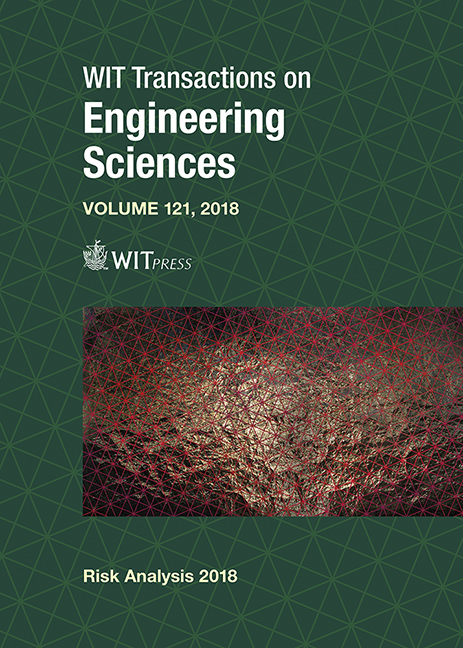IMPACT OF SPATIAL–TEMPORAL VARIATIONS ON FIRE VULNERABILITY: A CASE STUDY OF THE SOUTH-WEST DIVISION OF DELHI, INDIA
Price
Free (open access)
Transaction
Volume
121
Pages
10
Page Range
273 - 282
Published
2018
Paper DOI
10.2495/RISK180241
Copyright
WIT Press
Author(s)
SANJAY KUMAR TOMAR, AMARJEET KAUR, HAMENDRA K. DANGI
Abstract
Delhi, the capital of India, is experiencing a perennial influx of migrating population in highly congested, unplanned colonies having lack of basic civic and infrastructure amenities. The concentration of humans in numbers and activities in these areas has fostered new dimensions to fire hazards with enhanced risk to life and property. A greater proportion of poor quality housing, inadequate planning, monitoring and control in metropolitan cities lead to a greater number of fires and other urban disasters. Statistical tools coupled with geo-spatial techniques can be used to locate areas of high fire and life risk. Application of these techniques has the potential to help decision makers with proactive preventative measures and better resource allocations. This paper uses geo-spatial techniques to analyze the patterns of fire incidents in the South-West Division of Delhi from 2013–2016. Thematic maps depicting high, moderate and low level fire and life risk have been produced under a Geographical Information System (GIS) Environment for the area under study. The highest number of fire incidents was found to have occurred in low rise residential apartments and private dwellings. The occupants of residential colonies having low economic status were found to be more prone to injury and death during a fire incidence. In a domestic fire, Liquefied Petroleum Gas (LPG) was found to cause maximum injuries. The number of injuries due to fires was also observed to be higher during cold winter months, and fire incidents more frequent during 18:00 hrs–24:00 hrs. The number of fire deaths was found to be much higher between midnight and 06:00 hrs.
Keywords
fire, fire hazard, risk analysis, migration, geospatial, mitigation, unplanned





